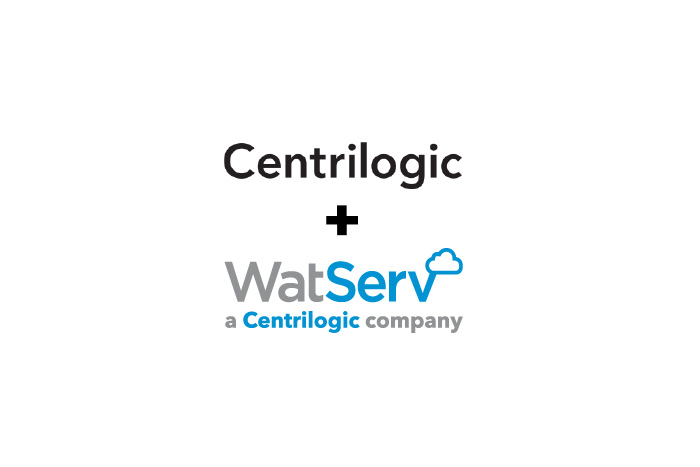What is Cloud Backup and How Does it Work?
November 7, 2022
Cloud computing has become a staple in company workflows, particularly given the rise of hybrid and remote working environments.
An important reason companies are drawn to cloud computing is its ability to mitigate cloud security risks by backing up data remotely at any time.
In this article, we’ll cover what cloud backup is, its benefits and considerations, and how to work with a cloud computing provider to assist in managing the backup process.

What is Cloud Backup?
Cloud backup is an online, remote, or managed backup service. Sometimes called Backup as a Service, it lets users backup, store, manage, and recover files and applications in a cloud environment. By extension, third-party cloud computing providers are companies that provide this backup service to end users.
Cloud backup services work by copying and storing server’s files to a separate server in a different location. Cloud server backup is a necessity for many industries now because the majority of their business operations, critical data, and applications are already cloud-based.
Companies often choose cloud backup services as part of their overall business continuity or disaster recovery plan to securely store their assets, which makes them available in the event of a disaster such as a system failure, natural disaster, cyberattack, or outage.
It’s important to note that cloud backup isn’t the same thing as cloud storage. The purpose of cloud storage is to free up space on local devices by having files (or copies of some files) saved to the cloud. Cloud backup, on the other hand, is designed to protect your files and systems from a catastrophic event.
Pros of Cloud Backup
The pros to a cloud backup system are numerous:
- Safeguards data and applications: Because critical data and applications are stored off-site, they are protected in the event of a disaster. With a lot of cloud environment software, such as Microsoft Azure or AWS, multiple copies of data are stored in various physical locations. In the event of a disaster at any one of those locations, data and apps will always be protected.
- Fast data recovery: Assets stores in cloud servers can be restored quickly, allowing companies to continue operations as usual with little to no downtime. In addition, using a Disaster Recovery as a Service (DRaaS) also gives companies a disaster recovery plan which includes quick access to stored data to mitigate loss.
- Recovery is reliable: Backup cloud services give companies instant access to critical data in the event of a disaster. This is a built-in failsafe that is offered with many cloud services.
- Scalable storage: Traditional backup systems, such as on-premise servers, are costly and inflexible. Cloud backup services are shared servers, allowing companies to use what they pay for without the additional cost of investing in infrastructure.
Cons of Cloud Backup
Although one of the most secure and cost-effective backup solutions, cloud backup does have a few potential drawbacks to consider:
- Inconsistent speed: The rate of upload and download speeds is variable depending on the size of data, network speed, and location. Speed slowdowns can be avoided by planning the timing of backups during a time that won’t affect regular business operations.
- Potential loss of control: Handing over your entire data assets to a third-party can be a challenge for businesses. Making this switch can feel like a loss of control of data. However, just because data is stored offsite and with a third-party provider doesn’t mean you don’t have control. But this is also why doing your research before committing to a third-party provider is critical.
- Cost of large data: For most organizations, cloud backup is extremely cost-effective. But for those companies that have extensive amounts of data and applications, costs can slowly balloon. Again, it’s always best to do your research and ask questions of potential third-party cloud backup providers.
- Potential security implications: With cyberattacks and breaches on the rise, it’s important to consider the security implications of any IT decision. While backups can be secured appropriately, it’s worth noting that not all providers offer the same levels of assurance.
How to Partner with a Cloud Computing Provider
There are plenty of cloud computing providers that offer cloud backup services. But not all cloud providers are the same. There are factors that you might want to consider before making the final decision on a cloud backup provider. Here are a few questions to ask your team and potential cloud computing provider:
1. What security measures do you need and does the provider offer them?
Security is top of mind, and as mentioned above not all cloud backup providers offer the same level of data protection. Before partnering with a provider, ask them what measures they have in place to verify identity and what data encryption measures are in place. Always make sure you work with a security-first provider.
2. Does the provider have integration with your SaaS services?
Again, not all cloud backup providers are the same. Some don’t have the capability to integrate with your SaaS services. Before partnering with a provider, take an inventory of all SaaS software used in your company, and check if the services the potential backup provider offers covers all of them.
3. Is the pricing in line with your company’s budget and expectations?
Consult with your team to determine what your company’s needs are and the corresponding budget. If you’re investigating third-party backup providers, look at the cost of scalability, security, breadth of SaaS integration, and availability of tech support.
4. Consider partnering with a provider that offers DRaaS
Disaster Recovery as a Service is a cloud computing service that provides all disaster solutions, from planning and forecasting to monitoring and execution. DRaaS comes hand-in-hand with cloud backup. Since your data and applications are already backed up in the cloud, planning for a disaster is only a natural extension of that service.
Get a Head Start on Your Cloud Computing
With more than 15 years of experience and ranked as one of Canada’s Top 100 Solution Providers, WatServ is a trusted cloud backup, disaster, and security provider that can help your business keep its cloud computing environment, data, and assets secure.
To learn more about how WatServ can help you, talk to an expert today.
About
WatServ is an IT solutions provider that helps organizations digitally transform through cloud technologies and managed services.
Serving clients as a trusted advisor since 2006, WatServ provides experience-tested, strategic solutions across all stages of the digital transformation journey. Clients choose WatServ to migrate infrastructure and applications to the cloud, secure critical data, implement disaster recovery, deploy virtual desktop, enable data-readiness for productivity solutions and manage IT environments.
Our clients span a broad range of industries, and we’re a global supplier of IT services for many Brookfield Portfolio Companies. To help our mid-size clients, we provide scalable offerings that simplify cloud adoption and drive business optimization. For enterprise clients, we co-create cloud solutions that enable stability and efficiency for complex IT tools and processes.
With more than 15 years of experience, WatServ has a track record of delivering quantifiable business results and a superior client experience. Ranked as one of Canada’s Top 100 Solution Providers for the last three years in a row, WatServ is always on.

